Business Etiquette When to Introduce Someone as Miss, Mrs., or Ms.
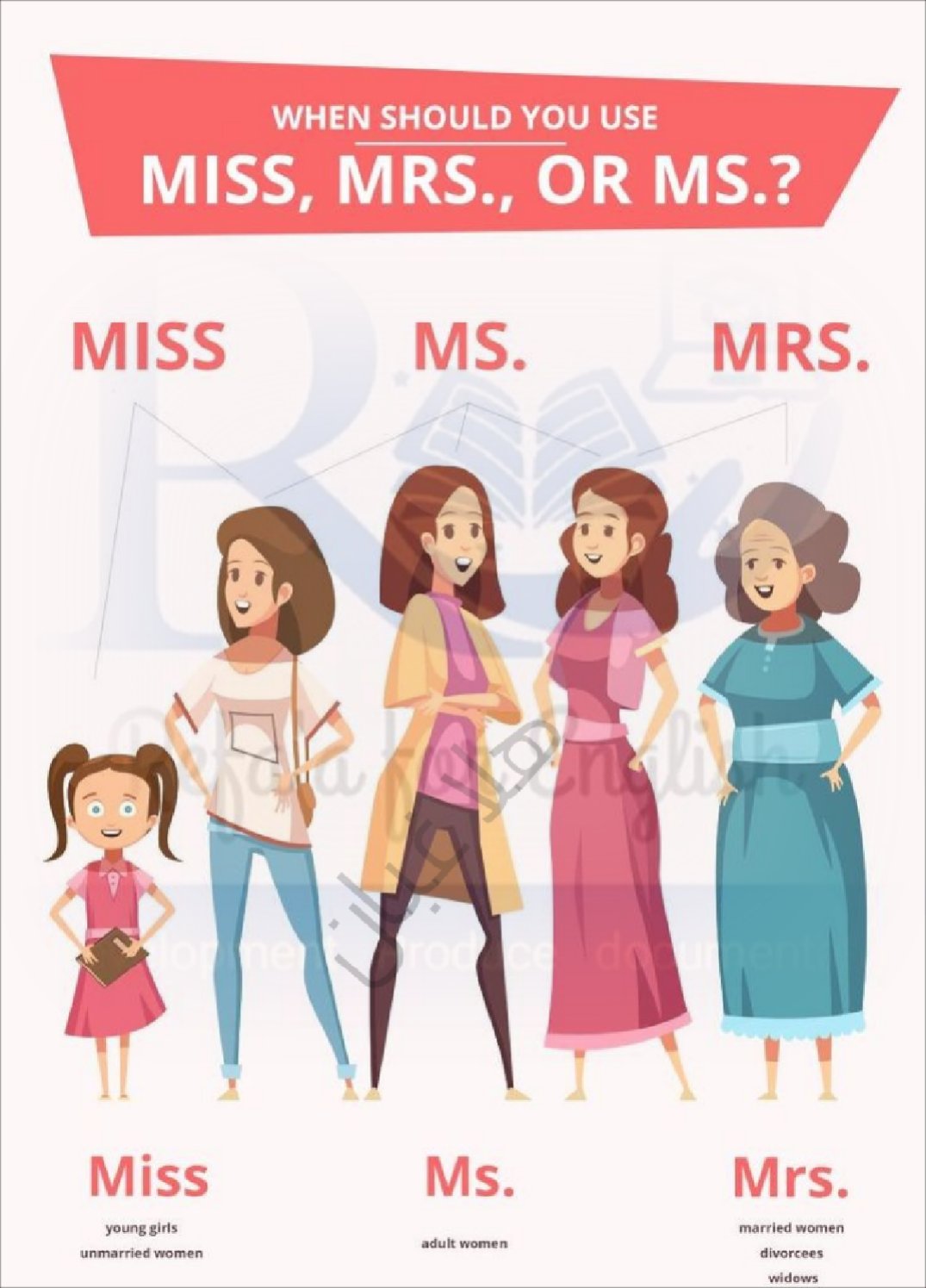
مجموعة رِفعة الانجليزي on Twitter "الفرق بين اﻷلقاب فى اللغة اﻷنجليزية Mr, Mrs, Ms, Miss كثيرا
Don't use Mr., Mrs., or Ms. or any other titles before first names. Don't write Mrs. Jane, or Dr. Jane, 2. To Start a Semi-Formal Email. Hey is very informal ! 3. When you DON'T KNOW the recipient's name. Avoid writing "Dear Sir or Madam" because it shows that you couldn't be bothered to look up the recipient's name.

Mrs Oder Ms IdirisSadeer
First, I check how the person has signed themselves in any prior correspondence (Best regards, Sally). If they use only first name, so do I. In cases where I am writing someone for the first time, if I know they are older I use Mr/Mrs/Ms. If they are not older, I will use Mr/Mrs/Ms and their family name.

Professional Email Ms Or Mrs
Mrs. is a title used to formally address a married woman. As married women used to almost always adopt their husband's surname, Mrs. would have indicated who they were married to, e.g. Mrs. Dalloway is married to Mr. Dalloway. It's important to remember that it can be offensive to assume a woman is married by addressing her as Mrs.
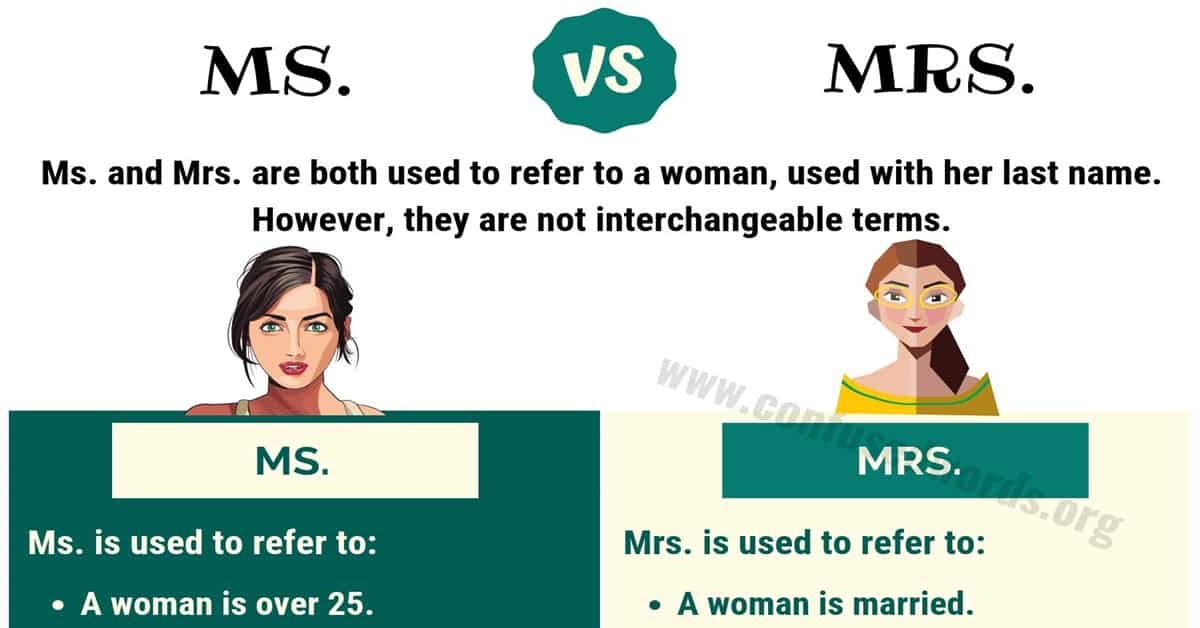
MS vs MRS How to Use Mrs. vs Ms. Correctly? Confused Words
21st August 2020 Writing Tips: How to Use Miss, Mrs., Ms. and Mr. We use titles like "Miss," "Mrs.," "Ms.," and "Mr." when using someone's first name could sound too familiar. For instance, when addressing someone you don't know well, you might say "Dear Ms. Turner" rather than "Dear Sophie."
:max_bytes(150000):strip_icc()/when-to-use-miss-mrs-or-ms-3514830_final1-5b3e6fa146e0fb00372e463b.png)
Business Etiquette When to Introduce Someone as Miss, Mrs., or Ms.
When should I use Mrs. or Ms. in emails? Ask Question Asked 6 years, 6 months ago Modified 4 years, 7 months ago Viewed 64k times 26 When I am writing emails, I prefer to use either Mr., Mrs., or Ms. when addressing the recipient's name.

E Mail Schreiben Englisch Vorlage
Selecting "Miss" or "Ms." How to pronounce them American vs. British: Crossing the Pond Miss, Ms., Mrs., and Mx. are not interchangeable terms. Addressing someone with the wrong title can be offensive, so it is important to know the difference between these four prefixes.

Mrs Oder Ms IdirisSadeer
Ms., Miss, and Mrs. are all titles used to address women formally, but they have different meanings. Miss is used to address an unmarried woman, while Mrs. is used to address a married woman. Ms., on the other hand, is a gender-neutral title that can be used for both married and unmarried women.
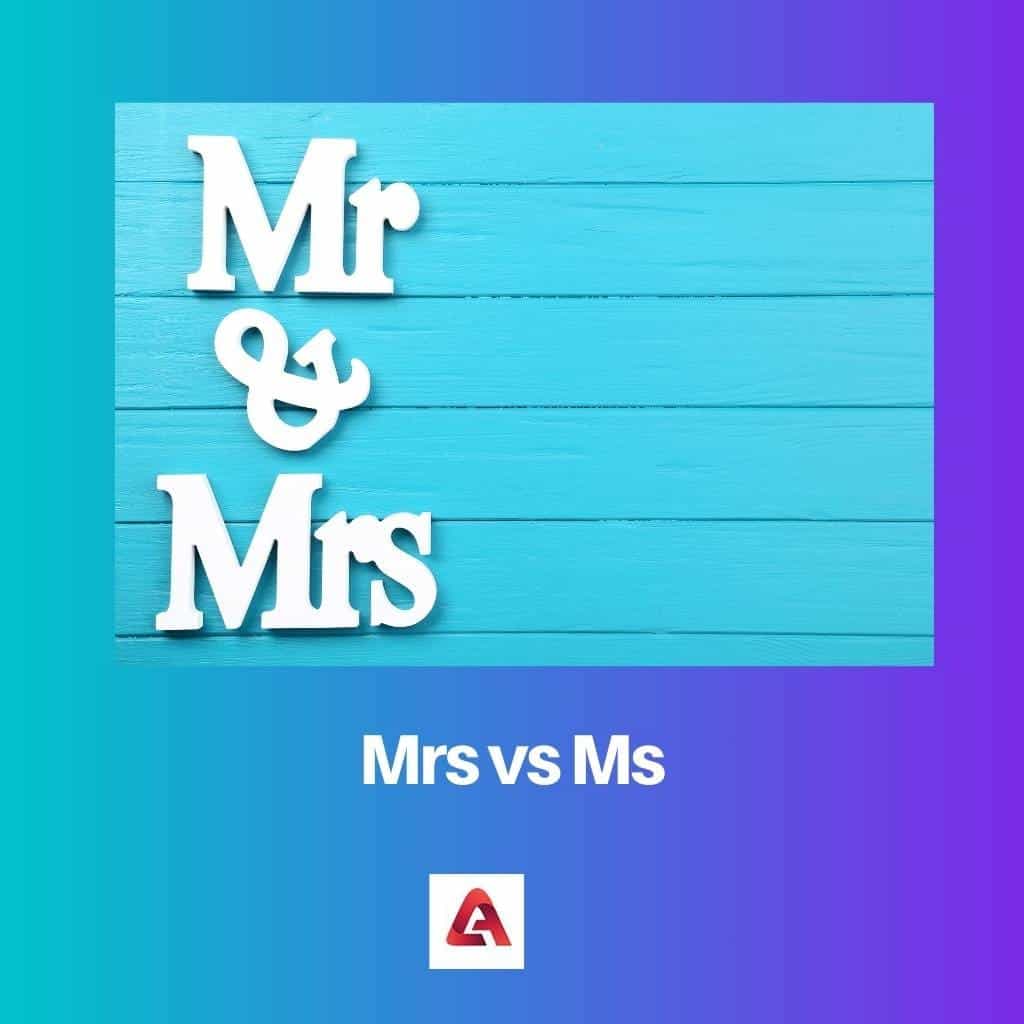
Mrs vs Ms Difference and Comparison
Mrs. (pronounced MIS-iz) is similar to Miss, except that it refers to a married woman. The other difference is that Mrs. is not used as a stand-alone title; to be polite in addressing a married woman without including her last name, speakers of American English would often refer to her as ma'am. Examples
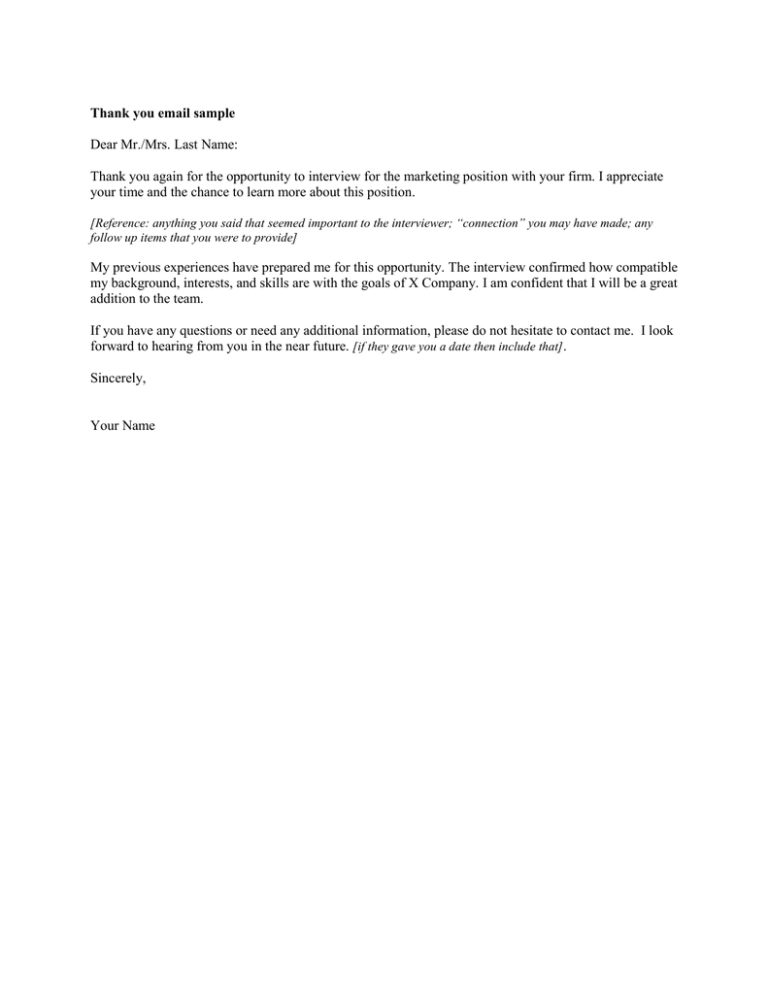
Thank you email sample Dear Mr./Mrs. Last Name
It is seen as infantilizing or condescending to address an adult woman "miss" followed by her last name. However, when addressing a woman whose name you don't know during an in-person encounter, "miss" and "ma'am" are acceptable terms to use, just as "sir" is for men. For example, "excuse me miss, you dropped your hat.".

Business Letter Writing Mrs, Miss or Ms? Miss or ms, Business letter
Mrs. is to address married women. Ms. is to address women who are unmarried or women who choose to use it. Believe it or not, some women don't think they should have to identify their marital status to strangers. In fact, one reader from www.englishforums.com illustrates this cultural point below: But why should women have to let that be known?

Miss or Mrs. English language learning grammar, English speaking skills, English vocabulary
The first option is to use a traditional title, such as "Mrs." or "Miss." "Mrs." is used to address a married woman, while "Miss" is used to address an unmarried woman. These titles can be followed by the woman's last name, for example, "Dear Mrs. Smith" or "Dear Miss Smith." 2. Use Their Job Title or Designation
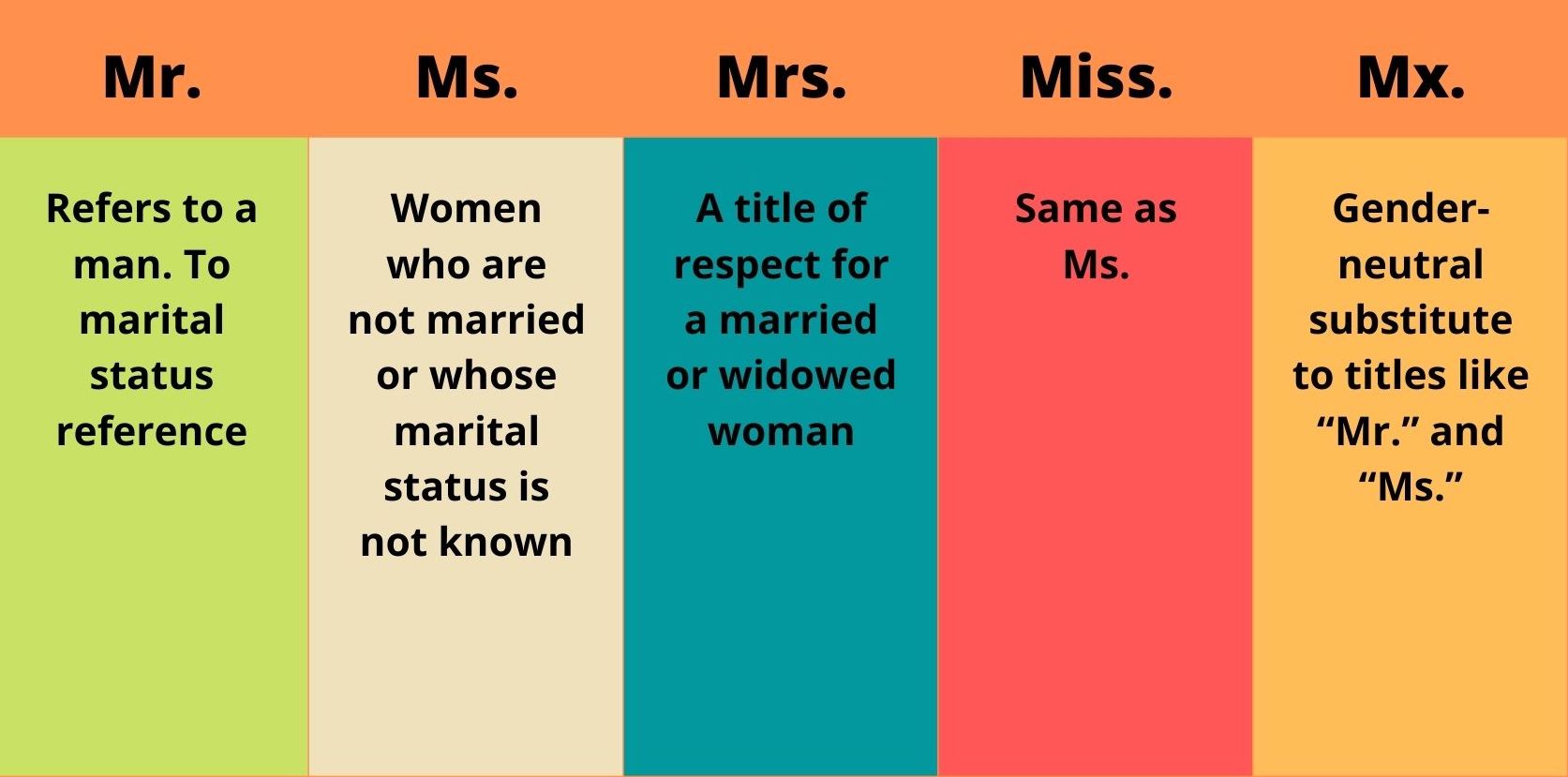
Ms., Mrs., Miss or Mx When to Use Which? BusinessWritingBlog
Miss Myers, please contact our office as soon as possible. Excuse me Miss, but I think you left something behind. She acts like Miss Know-it-all but is mostly unaware. Settings in which you will use "Miss" In a formal setting, it is best to use "Miss" in front of an unmarried woman's last name (surname).
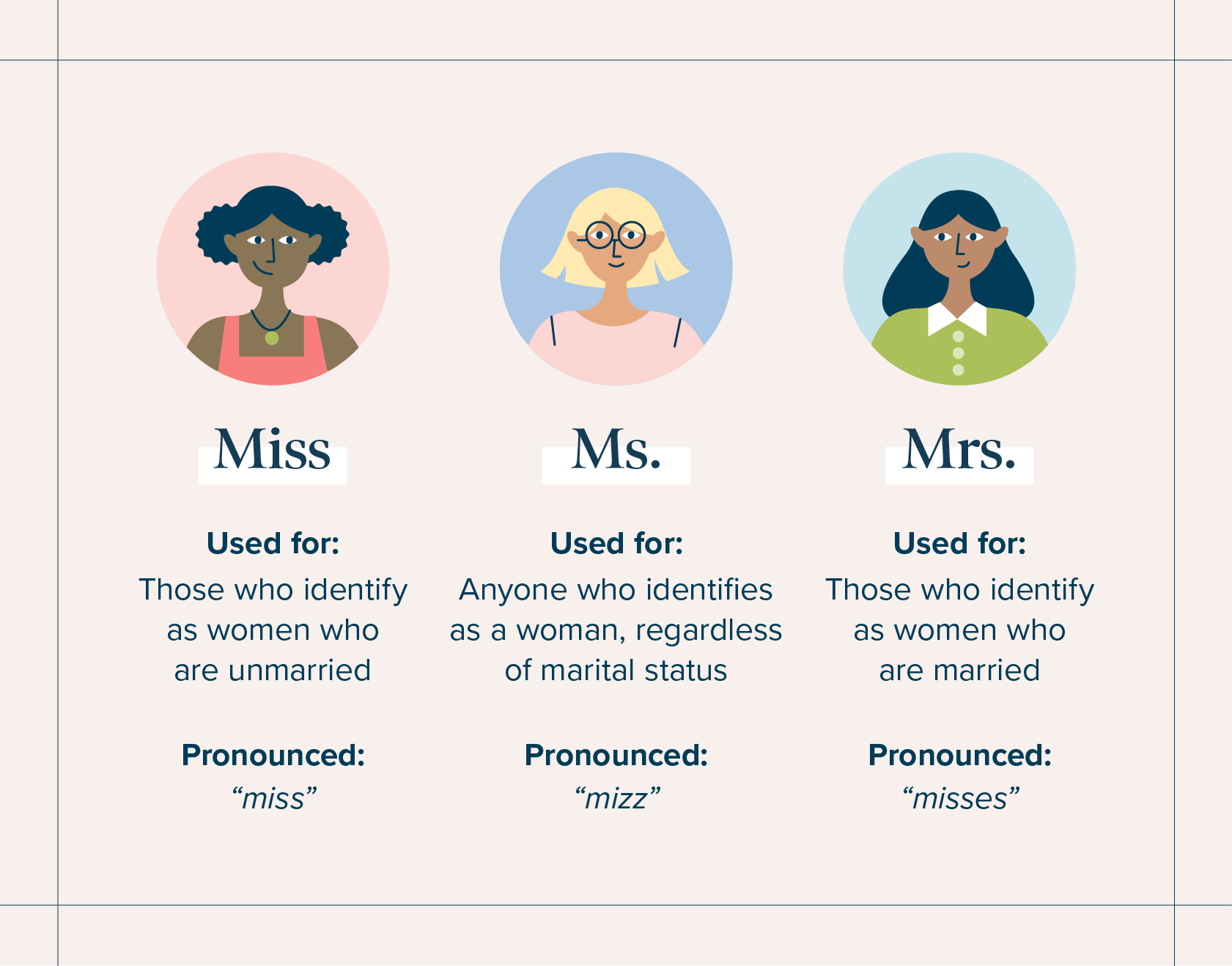
Ms. vs. Mrs. vs. Miss—What’s the Difference? Zola Expert Wedding Advice
What does Mrs. mean? Mrs. is a title for a married woman. This is the appropriate title to use when addressing married women with whom you are not on a first name basis. Mrs. is always followed by the woman's surname, like Mrs. Robinson. For example, Our English teacher, Mrs. Platte, brought her husband to the varsity basketball game.
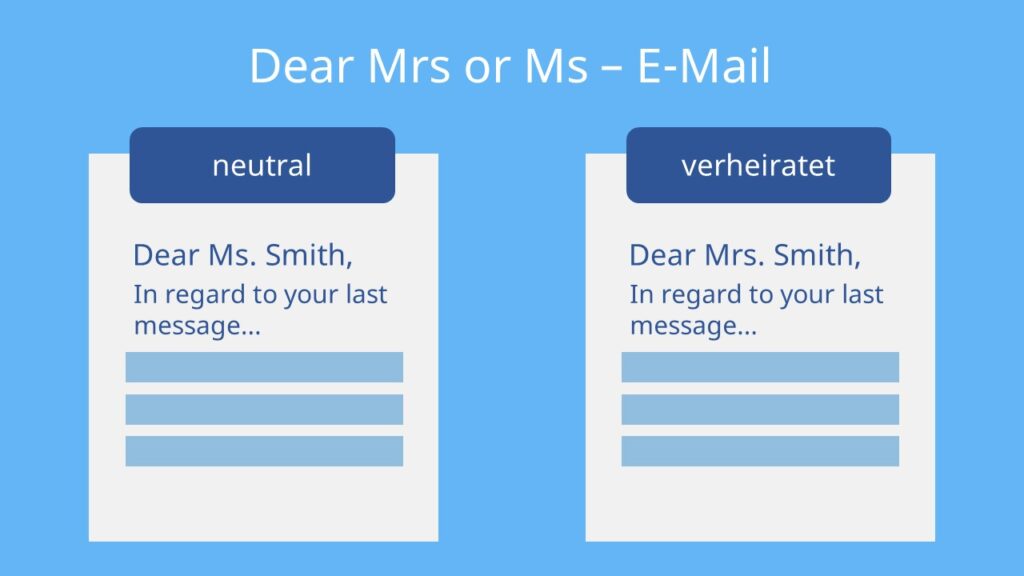
Miss, Mrs oder Ms? • Bedeutung & Unterschiede · [mit Video]
Mrs. (pronounced [ miss -iz]) is used to address a married woman of any age. Miss (pronounced [miss]) is used to address a young unmarried woman or girl. Table of contents Miss vs. Ms. How to use Ms. How to use Mrs. How to use Miss What does Mx. mean? Punctuation with Ms., Mrs., Miss, and Mx. Other interesting language articles
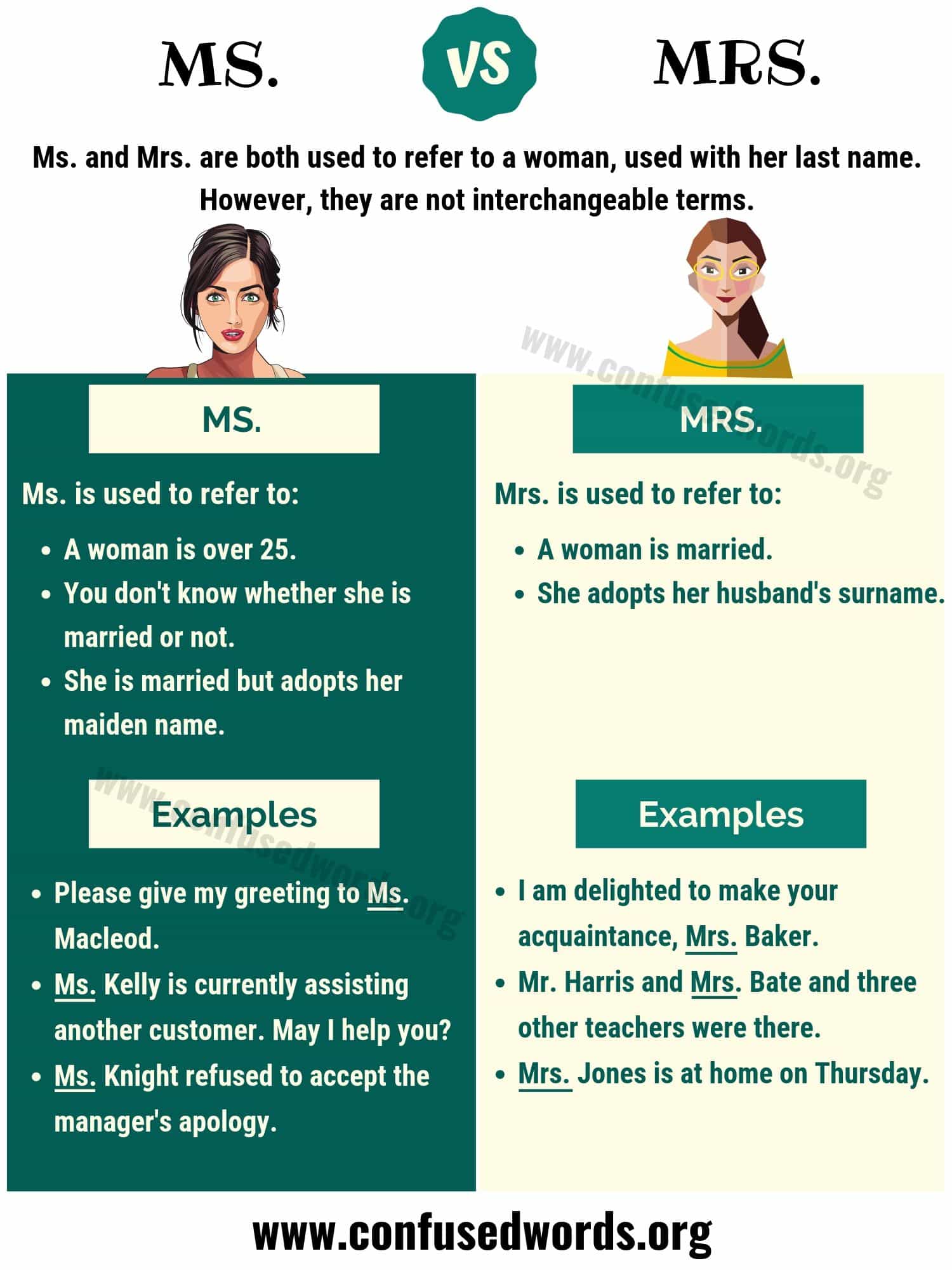
mrs. ms différence ms ou mrs. Succed
Die Abkürzung Mrs verwendet man, wenn man sicher ist, dass die Empfängerin verheiratet ist. Die Bezeichnung Miss passt nur - wenn überhaupt - bei jungen, unverheirateten Frauen.

How to Use Personal Titles Mr., Mrs., Ms. and Miss Miss and ms, Learn english, English
Mrs. is a traditional title used for a married woman. Miss is a traditional title used for an unmarried woman. Mx. is a title that indicates neither marital status nor gender. Uses of Miss Miss, when attached to a name, is a traditional title of respect for a girl or unmarried woman.